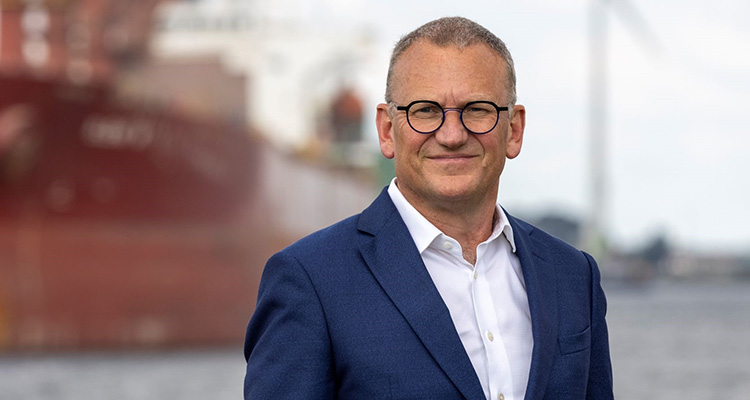
How North Sea Port is becoming the port of the future

North Sea Port was created in 2018 following the merger of the Ghent, Terneuzen and Vlissingen seaports. Its central location makes it a crucial logistics hub for Europe. This key transport player takes its social responsibility to reduce the ecological footprint of the port industry very seriously.
“We encourage companies on our site to use as many solar panels and wind turbines as possible,” says CEO Daan Schalck. “Together they are already producing more than 400 megawatts of energy. You can equate that with the capacity of a small nuclear power station.”
North Sea Port has also chosen for circularity. “The residual flows released from industry are also valuable raw materials,” says Schalck. Captured CO2, for example, is used for carbonic acid in sparkling drinks and for heating greenhouses and warehouses.
Sustainable transport
Of course, the port wants to keep emissions as low as possible in the first place. “Clean ships that dock here receive a discount on their berthing fees,” continues Schalck. “Inland vessels can also purchase green electricity, so they do not have to run their diesel engines for electricity.”
“We also encourage transport to and from the port area to come via inland waterways and railways as much as possible. To this end, we are investing with various partners in, among other things, loading docks, locks and train connections. This will not only lead to less CO2 emissions, but also to less congestion on our roads.”
Green hydrogen
Hydrogen is also an important part of the transition to a low-CO2 economy. In the port area, 60 hectares are being set aside for the construction of electrolysis plants by companies such as Ørsted, VoltH2 and Air Liquide. They will extract hydrogen from water using green electricity.
North Sea Port is also facilitating North-C-Methanol, a project that will convert water into green hydrogen via wind energy. Another factory will then use this to transform the captured CO2 from local industry into green methanol. This will reduce CO2 emissions by 140,000 tonnes annually.
Strong partnership
North Sea Port itself has been setting a good example of sustainable entrepreneurship for years. Daan Schalck: “We have had a passive office since 2005. We also introduced a mobility budget long before there were any tax incentives. And the footprint of our ships and cars has decreased by more than 60 percent in ten years.”
“As one of our two principal bankers, BNP Paribas Fortis is fully aligned with our vision and strategy. The bank has even committed to being our long-term partner for the refinancing of the port authority over the next ten years.”
Entrepreneurial success stories
At BNP Paribas Fortis, we are particularly proud to support pioneering and inspiring companies like North Sea Port. Working together to forge new ways of doing business: another example of Positive Banking.